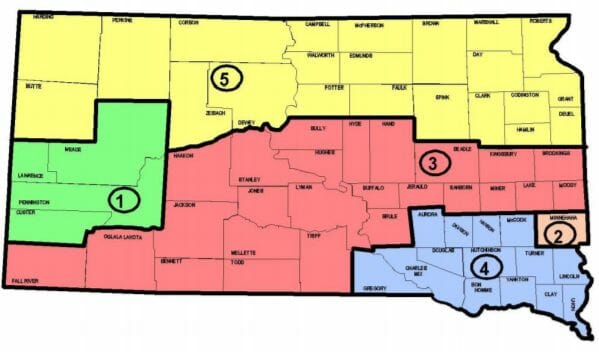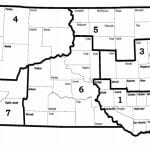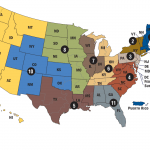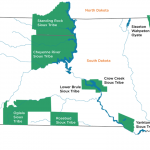Court Information
Welcome to our Court Information page. This page will give you a snapshot view of our state, federal and tribal court structure along with helpful links to help you locate the information you may need.
Click the title or plus sign to expand the information.
South Dakota’s courts are organized into a unified judicial system by the State Constitution. There are two levels of courts in South Dakota, the Supreme Court and the circuit courts. In addition, magistrate courts operate under the authority and supervision of the circuit courts.
South Dakota Supreme Court
The South Dakota Supreme Court is the state’s highest court and the court of last resort for state appellate actions. The Supreme Court is comprised of the chief justice, who is the administrative head of the Unified Judicial System, and four justices who are entrusted to deliver the final judicial authority on all matters involving the legal and judicial system of South Dakota. Learn more about the Supreme Court.
South Dakota Circuit Court
Circuit courts are the state’s trial courts of general jurisdiction through which the majority of criminal proceedings and civil litigation are processed. South Dakota has seven judicial circuits. Circuit court judges are elected by the voters within the circuit where they serve. The judges must be voting residents of their circuit at the time they take office. In the event of a vacancy, the Governor appoints a replacement from a list of nominees selected by the Judicial Qualifications Commission. You can locate more information on the SD Circuit Courts, along with contact information for each circuit, at their website.
South Dakota Magistrate Court
Magistrate courts assist the circuit courts in disposing of misdemeanor criminal cases and minor civil actions. These courts have limited jurisdiction but make the judicial system more accessible to the public by providing a means of direct court contact for the average citizen. The jurisdiction of the magistrate court varies depending on whether a magistrate judge or a clerk magistrate presides. Clerk magistrates are not attorneys but are clerks who receive specialized training. They provide functions that need to be handled expeditiously. Both magistrate judges and clerk magistrates are appointed by the presiding judge.
South Dakota Specialty Courts
Specialty courts are specialized court sessions that offer an intensive probation program for people with mental health and/or substance use disorders. Specialty courts aim to address the underlying problems that can cause criminal behavior. South Dakota operates several types of specialty courts in designated counties throughout the state, including Drug Court, DUI Court and Veterans Treatment Court. Learn more about these courts and their locations.
Judicial Qualifications Commission
The Judicial Qualifications Commission ("JQC") plays a vital role in the nomination, censure and/or removal of South Dakota judges and Justices. The authority for creation of the Judicial Qualifications Commission is granted by the South Dakota Constitution. The seven-member commission is comprised of two circuit court judges, elected by the judicial conference; three members of the bar practicing law but no more than two of whom may be of the same political party and they must be appointed by a majority vote of the state bar commissioners; and two citizens, who are appointed by the Governor, who are not of the same political party. The term of office for a commission member is four years. No person may serve more than two terms as a member of the commission. The purpose of the Judicial Qualifications Commission is to:
- Receive and investigate complaints against Justices or judges
- Conduct confidential hearings to determine whether complaints are justified
- Recommend censure, removal or retirement of a judge to the Supreme Court
- Investigate applicants for vacancies on the Supreme Court or circuit court bench
- Nominate two or more of the most qualified applicants to the Governor
To learn more about JQC, please visit the Unified Judicial System website.
The U.S. Courts were created under Article III of the Constitution to administer justice fairly and impartially, within the jurisdiction established by the Constitution and Congress. The federal court system has three main levels: U.S. District Court, U.S. Circuit Court of Appeals and the U.S. Supreme Court. Each level of court serves a different legal function for both civil and criminal cases.
South Dakota Federal District Court
In federal system, 94 district courts are organized into 12 circuits, or regions. The United States District Court for the District of South Dakota is the United States District Court or the Federal District Court, whose jurisdiction for issues pertaining to federal law or diversity for the state of South Dakota. Civil actions must arise out of a violation of one's constitutional rights, a violation of law or treaties of the United States or if the United States is party to the suit. Civil maritime cases and cases involving citizens of different states are also heard in district courts. In criminal cases, jurisdiction to hear a case occurs only if the Unites States is party to the suit or when prosecution is brought on by the United States. Whether it is a civil or a criminal case, a judge determines issues of law and a jury (or a judge) determines findings of facts. Learn more about the South Dakota Federal District Court.
United States Circuit Court of Appeals
Appeals from the District of South Dakota are taken to the United States Court of Appeals for the Eighth Circuit (except for patent claims and claims against the U.S. government under the Tucker Act, which are appealed to the Federal Circuit). The lower court ruling is reviewed by a panel of three judges to determine whether there was an issue with the application of law. The U.S. Circuit Court of Appeals hears both civil and criminal cases. Locate more information on the United States Court of Appeals for the Eighth Circuit at their website.
United States Supreme Court
The United States Supreme Court is the highest tribunal in the Nation for all cases and controversies arising under the Constitution or the laws of the United States. The Court is charged with ensuring the American people the promise of equal justice under law and, thereby, also functions as guardian and interpreter of the Constitution. The Supreme Court consists of the Chief Justice of the United States and such number of Associate Justices as may be fixed by Congress. The number of Associate Justices is currently fixed at eight (28 U. S. C. §1). Power to nominate the Justices is vested in the President of the United States, and appointments are made with the advice and consent of the Senate. Visit this United States Supreme Court website to learn more.
There are nine reservations in South Dakota and all of them have vital, functioning tribal courts. All of these courts are tribal courts which have their roots in a tribal sovereign authority which predates the United States Constitution. The nine reservations are:
- Cheyenne River Sioux Reservation
- Crow Creek Reservation
- Flandreau Santee Sioux Reservation
- Lower Brule Reservation
- Oglala (Pine Ridge) Sioux Reservation
- Rosebud Sioux Reservation
- Sisseton-Wahpeton Sioux Reservation
- Standing Rock Sioux Reservation
- Yankton Sioux Reservation
Reported tribal court decisions are most often reported in the Indian Law Reporter which is published by the American Indian Lawyer Training Program. This reporter is also a part of the Indian law collection at the University of South Dakota Law Library located in Vermillion, South Dakota.




